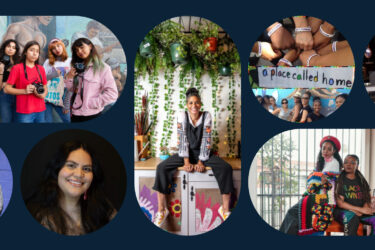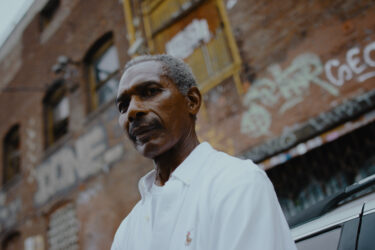Three years ago, voters took a hard look at the housing and homelessness crisis in L.A. and decided to do something about it. We passed Prop. HHH to create housing for thousands of people experiencing homelessness and have put more housing into the construction pipeline in the last three years than in the previous 30.
This month, to celebrate the passage of Prop. HHH, we’re sharing just a taste of the progress that our investments made possible. But while we champion each step forward, and each door opened to a new home, this is just the beginning. So much more housing is needed and we are campaigning hard to build support across L.A. County for long-term solutions. Homes end homelessness, and we won’t stop until we create enough supportive and affordable housing.
Here are four of the 112 buildings that voters in L.A. made possible. take a look at the real progress we’re making toward making sure everyone in L.A. County has the home they deserve.

Housing for seniors in L.A. County is limited, and we are committed to supporting our senior neighbors who have been forced into homelessness by rent prices. The 433 Vermont Apartments represent a $51.4 million investment to create 72 homes in Koreatown, 36 of which are supportive housing for those who need it most.
The six-story complex, developed by Meta Housing Corporation as part of L.A. County’s Vermont Corridor, will feature a 12,500 square-foot ground level YMCA, a central courtyard, and other shared spaces where residents can meet with service providers and build community.

In the Valley, progress is happening at Casa del Sol, a 44-unit affordable housing complex with 36 homes dedicated to low-income seniors. The plans focus on environmental efficiency, and feature 3,500 square feet of community space around the homes, including a community room and kitchen, lounge, outdoor courtyard, and onsite laundry. Our partners at a Community of Friends, the building’s nonprofit developer, are committed to providing comprehensive mental health services, life skills education, and legal counseling that will improve the mental and physical well-being of residents.

In West L.A., The Missouri Place Apartments will turn a shuttered animal shelter into 74 homes for low-income families and individuals, including 36 units reserved for people experiencing chronic homeless. The homes are an easy distance from the Expo/Bundy Metro station, and residents will be able to meet with service providers on site in dedicated offices and community spaces.

On the new campus of L.A.’s LGBT Center in Hollywood, nonprofit developer Skid Row Housing Trust is turning a parking lot into affordable housing for youth aged 18-25 who are experiencing homelessness. McCadden Plaza Youth Housing will provide transitional housing and specialized services designed to help at-risk youth attain and maintain stable housing. In Los Angeles, where 40% of young people experiencing homelessness identify as LGBTQ, this type of housing is an important way we can support our most vulnerable young people. Plans for the Anita May Rosenstein campus also include a 100-bed youth shelter, a community kitchen, and 99 affordable homes for seniors.
Supportive housing is incredibly effectiveat ending chronic homelessness. At least 90% of residents are able to maintain stable housing and experience improved health, financial stability, and self-sufficiency as a result of supportive housing services.
We’ve committed to fight a humanitarian crisis that is a daily reality for nearly 60,000 people in L.A. County, a crisis with no pity. No pity for the mothers fleeing domestic violence with their children who have nowhere to turn, none for transgender youth who’ve been kicked out of their homes, for seniors who are no longer able to afford housing on their limited incomes. Homelessness doesn’t make an exception for people living with mental or physical disabilities, or for families with working parents who still cannot pay the skyrocketing cost of rent in a state that is home to 91 of the 100 most expensive zip codes in the United States. We share this as a reminder that we need to double and triple the amount of housing that has been approved so far—we must keep fighting for more.
We think it’s incredibly important to identify and celebrate progress while acknowledging how much work is still ahead of us. Because if people lose faith in our collective ability to end homelessness, progress will only become more difficult in the future. The funding we voted for is effective, it’s just not enough. Let’s celebrate all that’s getting done, and let’s get out there and demand more.





